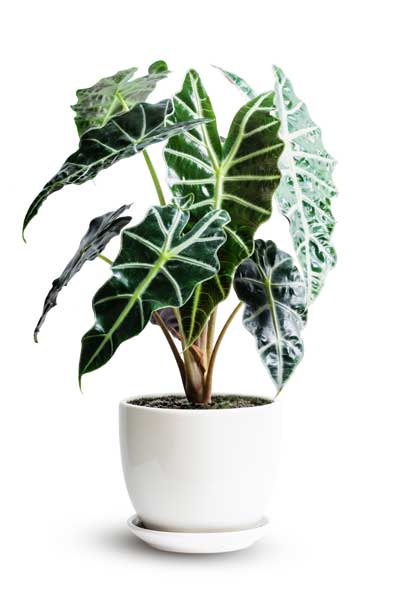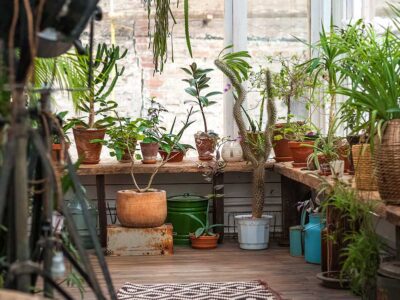Winter is just around the corner and it’s essential to plan ahead to protect your tropical plants from freezing temperatures. Most warm-weather plants like hibiscus and Mandevilla won’t survive being left outside during the colder months, so you’ll need to bring them indoors in a process called “overwintering”.

4 Tips to Overwinter Your Plants
The term “overwinter” might be confusing to some, because it appears to have the opposite meaning. Rather than expose your tropical plants to cold temperatures, overwintering essentially means allowing them to hibernate for the season. Some tropical plants will go dormant for the winter and can be kept safely indoors without the need for heat. Here are some tips to keep in mind:
- Timing—Don’t wait too long in the season before bringing your plants indoors. Plants can go into shock if they’re transferred from a cool outdoor environment to warmer temperatures indoors.
- Temperature—Tropical plants should be kept in a space between 40° to 50°F. Consider storing them in a garage, the basement, or tucked cozy in a closet. Some plants require more light and can survive a little higher temperatures like houseplants.
- Watering—You shouldn’t have to water more than twice a month, but keep an eye on the soil if your home is especially dry. You can also fertilize sparingly, at half strength.
- Disease Prevention—Bulbs and rhizomes should be dug out from the soil and checked for disease before being stored away. Periodically check your plants throughout winter for any signs of pests or disease.
When spring arrives, be aware that your overwintered tropical plants might bloom later in the season. Overwintering takes a lot of trial and error, so don’t be too discouraged if you make some mistakes along the way. You’ll learn as you go and you’ll be better prepared for the next season.
All-in-One Garden Services
The staff at Pleasant View Gardens is passionate about helping Minnesota homeowners maintain beautiful plants, both indoors and out. We’re proud to serve Minnetonka and the surrounding communities with our gardening expertise. If you have any questions about keeping your tropical plants safe this winter, please contact us today!

